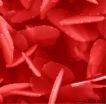(Press-News.org) MAYWOOD, Ill. -- Vitamin D deficiency is associated with a significant increase in lung transplant rejection, according to research conducted at Loyola University Health System (LUHS). These data were presented Monday at The American Society for Bone and Mineral Research 2010 annual meeting in Toronto, Ontario.
"Vitamin D deficiency is prevalent among lung transplant recipients," said Pauline Camacho, MD, study investigator and director of the Loyola University Osteoporosis and Metabolic Bone Disease Center. "This study shed greater light on the serious impact that this deficiency has on lung transplant patients."
Patients who undergo lung transplants are at risk for rejecting the organ, and 77 percent of these patients are vitamin D deficient. Researchers believe that vitamin D helps the immune system tolerate the organ. Thus optimal levels of this supplement are critical for positive outcomes.
This study evaluated 122 patients who underwent a lung transplant at Loyola between January 2005 and June 2008. Sixty-four patients were male and 58 were female with an average age of 49.2 years. Vitamin D levels were checked following the transplants. Of the 122 patients, 50 percent were vitamin D deficient, 18 percent were not deficient and 32 percent were unknown. Vitamin D deficiency was associated with a significant increase in rejection for 51.7 percent of patients during the first year following transplant. Vitamin D deficiency also showed a trend toward increased airway inflammation in 16.7 percent of patients.
The health benefits of vitamin D are widespread and range from warding off cancer, osteoporosis, heart disease, diabetes and depression. Researchers speculate that vitamin D also may improve the health of lung transplant patients. Further studies will evaluate the effect of vitamin D therapy on short- and long-term lung transplant rejection rates, lung function and long-term survival.
###
Thomas Cascino, third-year medical student at Loyola University Chicago Stritch School of Medicine (Stritch); Charles Alex, MD, FCCP, program director for lung transplant at LUHS; and Ramon Durazo, PhD, assistant professor of preventive medicine and epidemiology at Stritch, also were study investigators.
For more information, visit www.loyolahealth.org
Follow Loyola on Facebook, Twitter and YouTube:
Facebook:
http://www.facebook.com/pages/Loyola-University-Health-System/108439715558
Twitter:
http://twitter.com/LoyolaHealth
YouTube:
http://www.youtube.com/user/LoyolaHealth#p/u
END
The next time you feel your willpower slipping as you pass that mouth-watering dessert case, tighten your muscles. A new study in the Journal of Consumer Research says firming muscles can shore up self-control.
Authors Iris W. Hung (National University of Singapore) and Aparna A. Labroo (University of Chicago) put study participants through a range of self-control dilemmas that involved accepting immediate pain for long-term gain. In one study, participants submerged their hands in an ice bucket to demonstrate pain resistance. In another, participants consumed a healthy ...
Argonne, ILL—For the first time scientists have been able to watch nanoparticles grow from the earliest stages of their formation. Nanoparticles are the foundation of nanotechnology and their performance depends on their structure, composition, and size. Researchers will now be able to develop ways to control conditions under which they are grown. The breakthrough will affect a wide range of applications including solar-cell technology and chemical and biological sensors. The research is published in NANOLetters.
As coauthor Wenge Yang of the Carnegie Institution's ...
A new study in the Journal of Consumer Research found that ads featuring beauty products actually lower female consumers' self-esteem.
"One of the signature strengths of the advertising industry lies in its ability to transform seemingly mundane objects into highly desirable products," write authors Debra Trampe (University of Groningen, the Netherlands), Diederik A. Stapel (Tilburg University), and Frans W. Siero (University of Groningen). In an advertisement, a lipstick situated next to a stiletto heel represents glamour and a teddy bear in an ad for fabric softener ...
PHILADELPHIA - Taking a cue from the world of business-performance experts and baseball talent scouts, Penn Medicine translational medicine researchers are among the first to find a way to measure the productivity of collaborations in a young, emerging institute. They published their findings the most recent issue of Science Translational Medicine.
While metrics exist to measure the contributions of individual scientists, judging the effectiveness of team science has been more challenging. Reasoning that team science produces papers and grants, first author postdoctoral ...
People are willing to pay more for products that elicit their envy—but that's only when they are motivated by a positive, benign form of envy, according to a new study in the Journal of Consumer Research.
"Our studies showed that people who had been made envious of someone who owned an iPhone were willing to pay 80 Euros more on average," write authors Niels van de Ven, Marcel Zeelenberg, and Rik Pieters (Tilburg University).
The researchers made some important discoveries about the motivations that result from different kinds of envy. "Note that two types of envy exist: ...
The findings, published Oct. 19 in the Annals of Internal Medicine, showed the peer partner program resulted in lower glycated hemoglobin (HbA1c) levels after six months among men with uncontrolled diabetes.
The research was based on a peer partnership program established by the Veterans Affairs Ann Arbor Health System and the University of Michigan Medical School.
Each peer pair received initial brief training in peer communication skills and was expected to communicate by telephone at least once a week about their mutual efforts to improve diabetes control. Program ...
VIDEO:
The lamprey's body is gray, and the areas where muscle is active are shown with black lines. Note that the active muscle moves backwards slightly faster than the fish...
Click here for more information.
Scientists at the University of Maryland and Tulane University have developed a computational model of a swimming fish that is the first to address the interaction of both internal and external forces on locomotion. The interdisciplinary research team simulated how ...
How do people decide how much to spend on purchases for themselves versus others? A new study in the Journal of Consumer Research says it all depends on how powerful we feel at the moment of choice.
"We ask whether the powerful and powerless differentially value the self versus others, and whether this, in turn, translates into observable differences in their spending behavior," write authors Derek D. Rucker, David Dubois, and Adam D. Galinsky (Kellogg School at Northwestern University).
The authors conducted five experiments where they manipulated participants' states ...
If sleeping on a bed of ice or eating bacon-flavored ice cream doesn't sound too appealing, consider the tale you'll have to tell about it later. According to a new study in the Journal of Consumer Research, some people can't resist a chance to collect experiences.
"Recent marketing trends suggest that many consumers are attracted to unusual and novel consumption experiences and choose vacations, leisure activities, and celebrations that are predicted to be less pleasurable and enjoyable," write authors Anat Keinan (Harvard Business School) and Ran Kivetz (Columbia Business ...
People are more likely to buy unhealthy foods when they pay using credit or debit cards, according to a new study in the Journal of Consumer Research.
"Two factors contribute to this intriguing effect," write authors Manoj Thomas (Cornell University), Kalpesh Kaushik Desai (State University of New York, Binghamton), and Satheeshkumar Seenivasan (State University of New York, Buffalo). "First, there is a correlation between unhealthiness and impulsiveness of food items: Unhealthy food items also tend to elicit impulsive responses. Second, cash payments are psychologically ...


